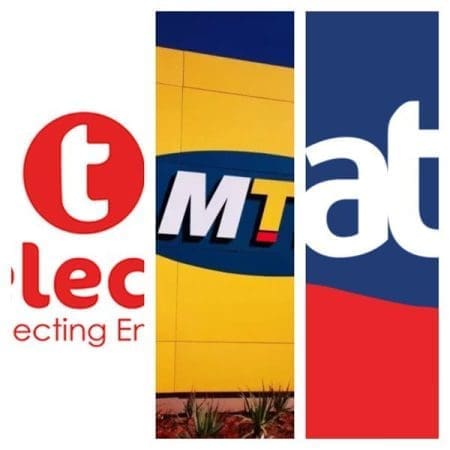
Ghana’s unreliable electricity supply is secretly inflating internet data costs for consumers, according to a policy brief released by IMANI Africa on November 12, 2025, revealing a hidden connection between power instability and digital service expenses.
The think tank’s analysis demonstrates that high electricity costs and erratic power supply represent major obstacles to building a competitive digital economy with affordable internet access. Ghanaian internet users pay significantly more for data than people in countries with similar income levels, partly due to energy infrastructure challenges.
Every digital service, website, or mobile application requires storage in data centers that demand constant, stable electricity to maintain servers operating around the clock. Ghana’s national grid suffers frequent power cuts and voltage fluctuations, forcing data center operators to rely heavily on diesel generators and backup systems.
These generators consume expensive fuel and require costly maintenance, adding substantial operational expenses to already elevated industrial electricity tariffs. Running a data center in Ghana consequently costs far more than operating similar facilities in Europe or South Africa, where power supplies remain stable and energy prices stay lower.
Many Ghanaian businesses and technology startups choose to host their websites and applications abroad, seeking cheaper electricity and reliable power infrastructure. This decision creates an unexpected consequence for local internet users who access these supposedly Ghanaian digital services.
When users open a Ghanaian app or visit a local company’s website, their internet traffic often travels outside the country and back, a process technology experts call “tromboning.” This extended routing path not only slows connection speeds but also increases costs for internet service providers, who transfer these expenses directly to consumers.
“Unfortunately, Ghana’s power grid is plagued by frequent interruptions and instability. This forces every data center to invest heavily in expensive backup systems, including diesel generators, which dramatically increases both construction and operational costs,” IMANI’s brief stated.
The policy document emphasized that high industrial electricity tariffs compound these challenges, making hosting digital services in Ghana more expensive and riskier compared to established technology hubs. This economic reality effectively exports Ghana’s digital economy to foreign jurisdictions with better energy infrastructure.
IMANI warns that digital inclusion will remain unattainable for many Ghanaians until the country addresses its fundamental energy problems. A dependable power grid serves not only as the foundation for cheaper data but also proves vital for job creation and building a modern, technology driven economy.
“Ghana’s digital economy is effectively being exported. When a Ghanaian user accesses this Ghanaian app, their traffic must travel internationally, reinforcing the tromboning effect and weakening the very business case for local peering,” the think tank argued in its analysis.
The organization characterized the power situation as more than mere inconvenience, calling it a strategic barrier that actively prevents localization of Ghana’s digital ecosystem. This structural problem undermines efforts to develop indigenous technology capacity and keeps digital service costs unnecessarily high.
Local technology entrepreneurs face difficult choices when launching new ventures. They must either absorb higher operational costs associated with hosting services domestically or relocate their infrastructure abroad, effectively contributing to the digital economy exodus that IMANI describes.
The brief’s findings suggest that efforts to expand internet access and reduce data costs cannot succeed without first addressing underlying energy infrastructure deficiencies. Fiber optic cables and mobile towers alone cannot solve affordability challenges when power instability drives up backend operational expenses.
Internet service providers pass these elevated costs to consumers through higher data prices, creating a “power penalty” that Ghanaians pay each time they go online. This hidden surcharge affects everyone from students accessing educational resources to businesses conducting online transactions.
IMANI’s analysis highlights how seemingly unrelated infrastructure sectors intersect to shape digital economy outcomes. The connection between electricity reliability and internet affordability demonstrates why comprehensive infrastructure development requires coordinated policy approaches across multiple sectors.
The think tank’s recommendations implicitly call for government prioritization of power sector reforms as a prerequisite for achieving digital economy ambitions. Without stable, affordable electricity, Ghana’s aspirations for technological advancement and digital transformation face fundamental constraints that no amount of telecommunications investment can overcome.
